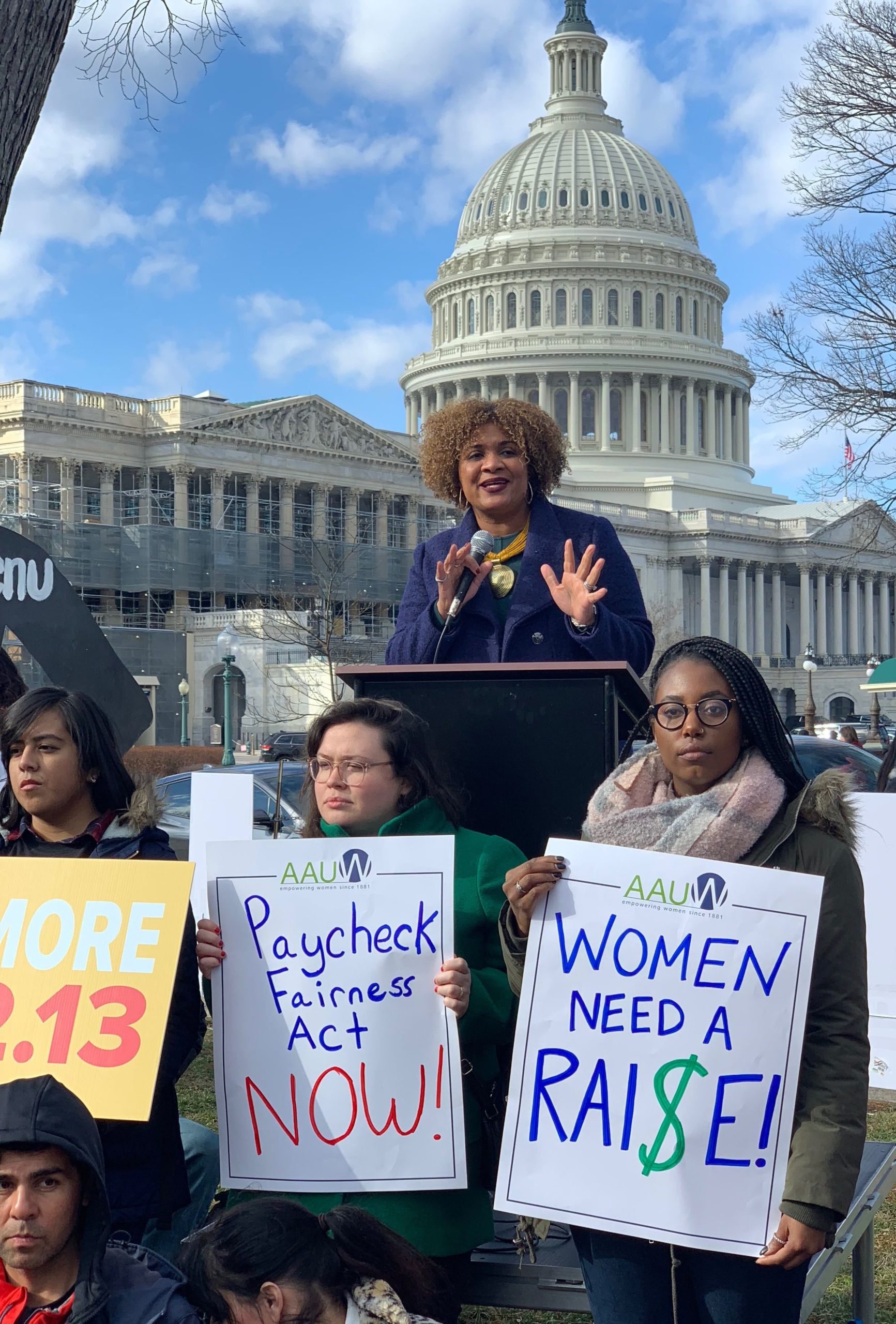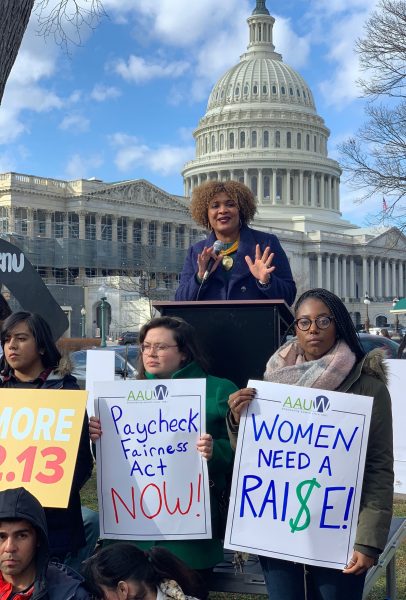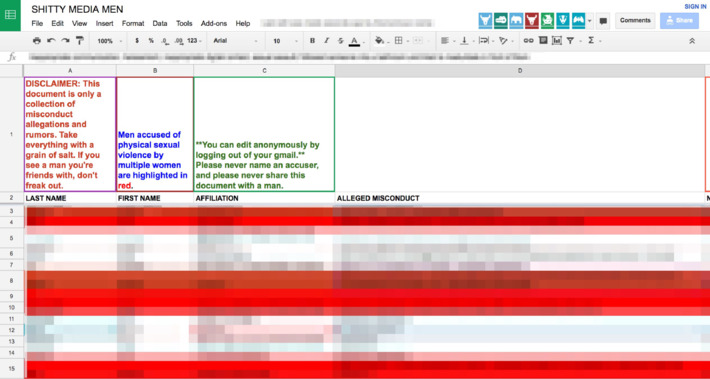Abortion rights, women of color, and LGBTQI+ people are under attack. Pledge to join us in fighting for gender justice.
How Women Can Work with Safety, Equity, and Dignity


It’s 2019, and women across the country – especially women of color – continue to experience a pay gap and a higher risk of poverty than men.
Persistent pay discrimination, often cloaked by employer-imposed pay secrecy policies, is one factor driving these wage gaps. Women’s overrepresentation in low-wage jobs is another: women are close to two-thirds of the workforce in jobs that pay the minimum wage or just a few dollars above it. Women, disproportionately women of color, are even more than two-thirds of the workforce in tipped jobs—jobs for which federal law only requires employers to pay $2.13 an hour, a rate that hasn’t gone up in a shocking 28 years.
On February 13, NWLC made it clear to Congress that we are committed to seeing these statistics change through the passage of the Paycheck Fairness Act and the Raise the Wage Act, so that women can work with safety, equity, and dignity.
How the Paycheck Fairness Act would narrow the gender wage gap
Testifying at a joint subcommittee hearing in the House Committee on Education and Labor on the Paycheck Fairness Act (H.R. 7) that day, Fatima Goss Graves, President & CEO of NWLC, made it clear just how important the Paycheck Fairness Act would be for women and families. Providing context about the harm the gender wage gap causes—especially for women of color, who experience the most significant wage gaps–Goss Graves highlighted how the wage gap contributes to poverty and how it negatively impacts our economy.
She outlined four main ways in which the Paycheck Fairness Act would strengthen the Equal Pay Act of 1963: (1) by protecting employees from retaliation for discussing pay, (2) by limiting the use of wage history in the hiring process, (3) by closing loopholes that have allowed employers to pay women less than men for the same work without a legitimate business justification, and (4) by ensuring that women can receive the same robust remedies for sex-based pay discrimination that are currently available to those subjected to discrimination on race or ethnicity. Each of these steps is essential to improve transparency and combat pay discrimination on the job—but they are not the only tools we need to narrow persistent gender wage gaps.
How the Raise the Wage Act would also narrow the gender wage gap
Goss Graves also made it clear that day how the recently introduced Raise the Wage Act—which would raise the minimum wage from $7.25 an hour to $15 an hour by 2024 and phase out exclusions that have allowed employers to pay tipped workers, people with disabilities, and young workers even lower wages—could also narrow the gender the wage gap.
At a briefing that NWLC co-hosted with Restaurant Opportunities Center United (ROC United), before an audience of hundreds of restaurant workers and owners from across the country as well as members of Congress, Goss Graves called for One Fair Wage for all working people. She and Saru Jayaraman, President & CEO of ROC United, highlighted how poverty level wages heighten women’s economic vulnerability, which in turn heightens their vulnerability to sexual harassment on the job. The Raise the Wage Act—which not only raises the minimum wage to $15 an hour but ensures that tipped workers will receive that wage before tips—would reduce that vulnerability while helping women lift their families out of poverty. And because women are nearly 60 percent of the close to 40 million workers who would get a raise under the Raise the Wage Act, the bill would likely help narrow the gender wage gap as well.
Both the Paycheck Fairness Act and the Raise the Wage Act are necessary for narrowing the gender wage gap
On February 13, NWLC made it clear to Congress: It’s time for equal pay for women and One Fair Wage for everyone. As Goss Graves pointed out at the rally that day in support of One Fair Wage and the Paycheck Fairness Act that NWLC co-hosted with ROC United, the National Partnership for Women and Families (NPWF), and the American Association of University Women (AAUW), “Don’t let anybody tell you that you have to choose – you can get a family sustaining wage and be paid fairly when you’re in the same job.” Both the Paycheck Fairness Act and the Raise the Wage Act are necessary for achieving this much-needed change.





